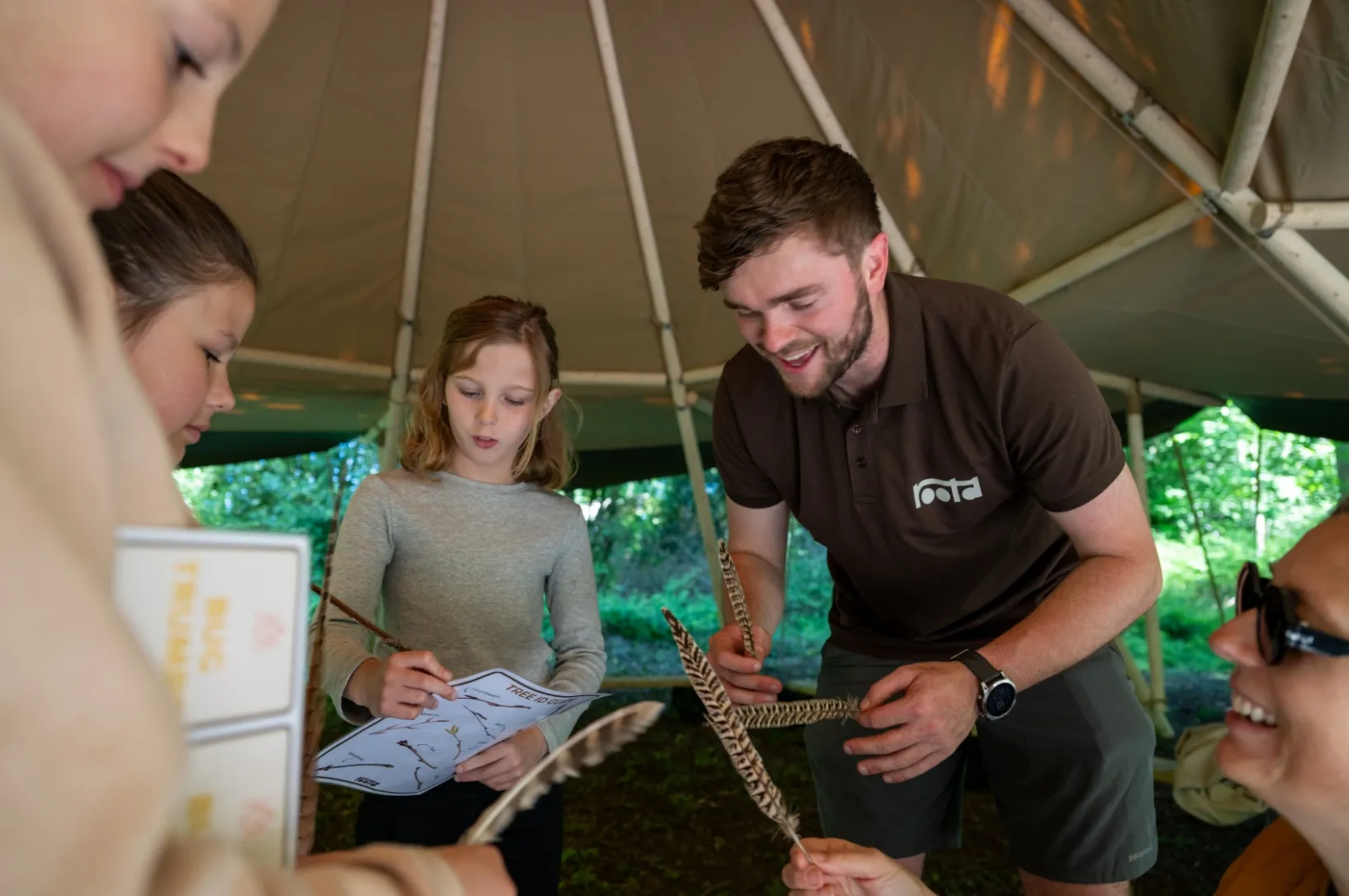
Why Digitally Detox?
Getting away with your school on a residential trip is the perfect way to leave technology and screens behind. We all know that screen-free time and digital detoxes can be hugely beneficial for adults. But did you know that nowadays, screen-free time and digital detoxes are just as vital for young people too? This is largely due to children receiving phones getting younger and younger.
According to Ofcom, a quarter of 5–7-year-olds and 91% of 11-year-olds in the UK own a smartphone, and the use of social media apps has increased among young children, all of which have algorithms designed to keep them scrolling.
The pros and cons of screens
We are a generation lucky enough to enjoy the many benefits of modern technology. Parents and teachers use technology as an invaluable source of information, to support learning and homework, or to stay in contact with family and friends who live further away. But as well as enhancing young people’s lives, when used too much, it can have several negative impacts on young people, which are well documented.
At Rootd, we are also very aware of the impact of Nature Deficit Disorder with children choosing to spend time on screens rather than outside being one of the biggest causes.
The growing concern around screen time led one city in England to propose a change. Recently, St Albans Primary Schools Consortium wrote a letter to primary pupils’ parents across the district suggesting students not have smartphones until they are 14 years old, as constant internet access robs children of their childhood as time spent on a device reduces time spent playing, interacting and developing vital social skills.
Unplugging on residential school trips
The challenge is to find the balance between using tech to enhance children’s lives, without letting it tip into unhealthy territory. Sometimes all it takes is a few days away from technology or a ‘digital detox’ to help shift the perspective.
On a Rootd residential trip, once children experience the power of the outdoors, they begin to see the power of getting off their screens, and 85% of children report being happier after being in nature,
On a residential trip,
- There is a no phones or electronics rule.
- We experience a release from the pressure of keeping up-to-date and connected on social media.
- Expert team leaders support the trying of new activities.
- Children can focus on each activity and experience as it takes place without the distraction of screens.
- Everyone engages with each other and in teamwork.
- Children have the freedom to explore and connect with the great outdoors in a safe and supportive woodland setting.
- Children challenge themselves and build independence.
- Activities and downtime take place in an encouraging natural outdoor environment.
- The focus is entirely on playing, interacting, and developing social (and other) skills.
- Children have uninterrupted time to try new challenges they wouldn’t otherwise have attempted.
- Instead of seeing quick, flashing images, everything is approached mindfully and is allowed to slow down.
- Children have time to immerse themselves in the great outdoors and appreciate their experience.
- A residential adventure guarantees some much-needed time outdoors connecting with nature.
- Children experience and see the joy of getting off their screens.
- They get to take part in activities such as climbing trees and singing songs around the campfire.
- Children engage all their senses to find their way around and engage in activities.
- Teachers have the opportunity to fully engage with pupils and see their capacity for learning outside the classroom and away from screens.
Finding balance on school trips
We know that since the pandemic, children can be more anxious doing things outside and in real life, but from our experience, we know that so many children do not get the opportunity to experience wild spaces and the outdoors and have a largely screen-based lifestyle, and our mission is to change this. We want to provide as many as possible with the opportunity to “Unplug, switch on and live in the here and now”.
From Survivor Bushcraft, building shelters, and lighting fires to learning more about the British woodland and wildlife, our primary school residential trips provide the opportunity to engage with each other and the outdoors.
What do children think about screen-free time?
When faced with the idea of taking a child’s phone away, most parents will probably be filled with dread, but interestingly, an online poll for the children’s TV show, BBC Newsround, showed that 75% thought a smartphone ban was a good idea. Only 16% thought it was a bad idea, and 9% were unsure.
There are so many wonderful things that come from having smartphones, but being able to inspire children to unplug, switch on, and live in the here and now, is what a Rootd residential school trip is all about.
Contact us for more information about our Rootd Residential Trip